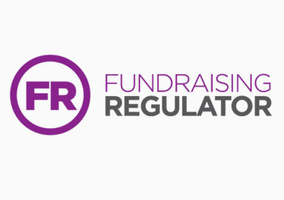Charities have been urged to safeguard their beneficiaries and reputation by conducting due diligence when third parties raise money on their behalf in new guidance covering online gaming.
The advice from the Fundraising Regulator, issued ahead of its updated Code of Fundraising Practice coming into effect in November, forms part of extensive notes covering safety and wellbeing around online gaming events.
These events offer a growing source of income for charities, with more than $400m (around £300m) raised for charitable causes on livestreaming platform Twitch during 2024.
The guide, one of three published this week, also urges charities to consider the suitability of livestreamed games’ content for their likely audience, whether to appoint chat moderators, and potential knock-on effects of negative online behaviours.
Prioritise wellbeing and be clear about relationships
“When carrying out online gaming fundraising, make sure you have access to training and support to help protect the safety and wellbeing of your staff and third-party fundraisers,” the guidance says.
“Make sure they know when and how to deal with, escalate and report content when appropriate, such as to social media/streaming platforms and to the police.
“Those who are online gaming, hosting or moderating an online gaming event on your behalf should know when and how to hide, remove and/or report illegal, harmful or offensive content.”
The regulator also advised charities to be alert to how online gaming fundraising could impact participants’ vulnerabilities, for example where games contain gambling-like elements such as “loot boxes”, or other in-game purchases.
And it emphasised the importance of clarity around relationships between charities and those involved in fundraising on their behalf.
“Be clear about whether those who are online gaming fundraising for you are ‘in-aid-of’ or ‘on-behalf-of’ fundraising volunteers,” the guidance says.
“Remember to follow the code and the law if those carrying out online gaming fundraising on your behalf fall within the definition of a professional fundraiser or commercial participator.”
Social media standards
The Fundraising Regulator’s separate guide on using social media for fundraising makes many similar points to its advice on online gaming.
These include ensuring content is age-appropriate, being able to manage illegal, harmful or offensive material, and setting boundaries when it comes to collaborating with third parties.
“If you have a social media policy and/or social media ‘house rules’, you should publish them on your institution’s website and visibly link to them from your social media profile,” it says.
“This is so that current and potential fundraisers and donors know the social media standards you expect.”
Aside from safeguarding and wellbeing issues, the guidance also reminds charities of their responsibilities relating to transparency around fundraising, and that social platforms’ content restrictions “do not justify” not meeting these.
“If the character, word or space limits on the social media platforms you use do not enable you to publish information required by the code, you must make the details available through easy, accessible and visible links to another online source,” it says.
It adds “you should aim to provide full information that is only one click away and linked from your social media post”, such as via a hyperlink, or threaded or pinned posts.
Risk assessing at traditional fundraising events
The regulator’s third guidance document, covering traditional fundraising events, foregrounds the need to carry out effective risk assessments, including factoring in any requirement to comply with the Terrorism (Protection of Premises) Act 2025, also known as Martyn’s Law.
“Carry out a basic disclosure and barring service (DBS) check [or equivalent in Scotland or Northern Ireland] on anyone aged 16 and over, if your risk assessment determines it’s appropriate,” the guidance states.
“If your fundraising event will involve contact with children or vulnerable adults, consider whether your staff and third-party fundraisers are eligible for a higher-level check, but only request such a check where you are legally allowed to do so.”
As with the advice on fundraising via online platforms, the new guide spells out the importance of having clear relationships, including written agreements, with third parties involved in events.
Related articles











